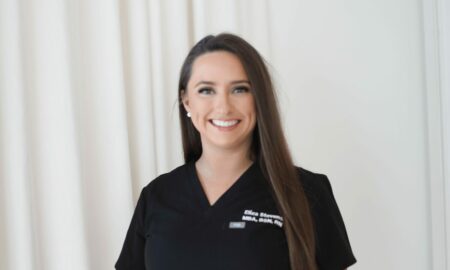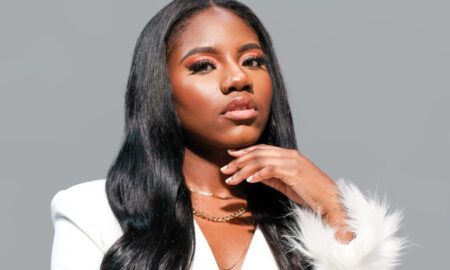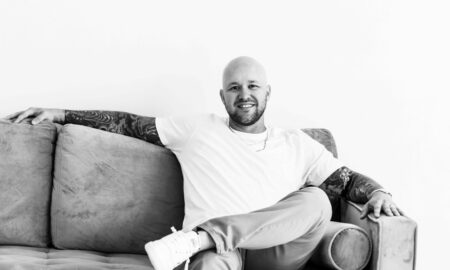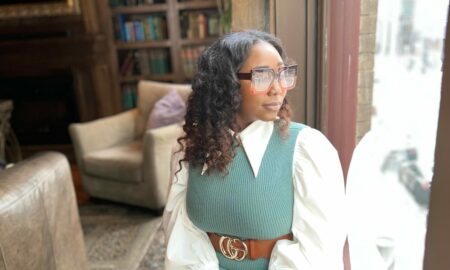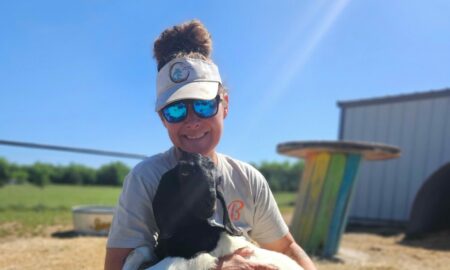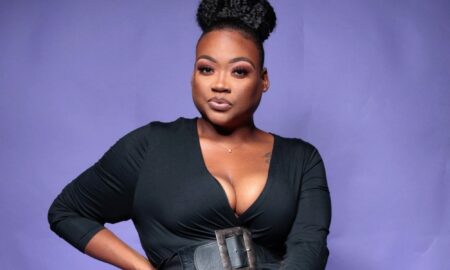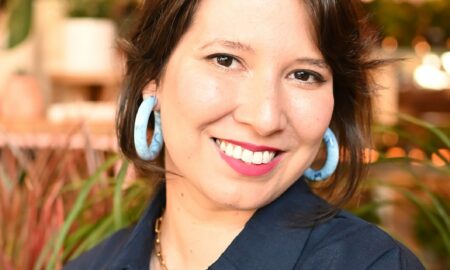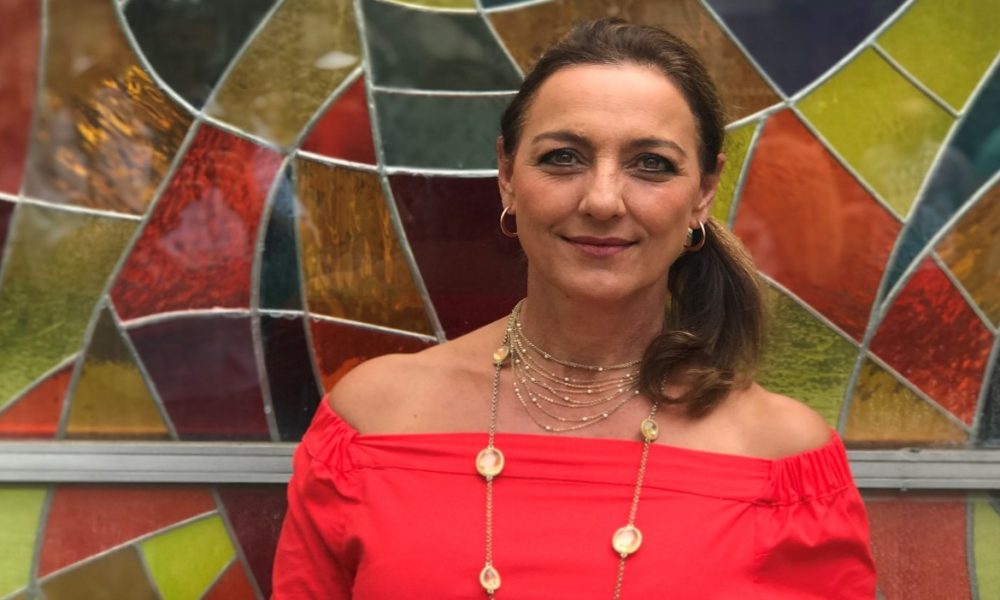

Today we’d like to introduce you to Helanie Scott.
So, before we jump into specific questions about the business, why don’t you give us some details about you and your story.
I began my career as a true entrepreneur at age 14, while I was still in South Africa. At that young age, I did some modeling and acting out of a modeling school in Pretoria. The administrator of the school approached me during a modeling competition and asked, “Would you like to run a modeling school in your town?”
“Absolutely,” I responded, with the certainty that only a fourteen-year-old-girl can muster.
My father converted our garage into a little studio, and I brought the little kids in the neighborhood and gave them modeling lessons. I made a handsome amount of money for a teen in those days, about $800 a month, running modeling classes and putting on modeling shows in our town.
When I left school, I went into modeling and acting and even did several movies. I soon found that I was truly a business woman and saleswoman at heart. So at the tender age of 21, I bought my first business. It was one of the largest modeling/acting agencies in South Africa at the time. As I ran this agency, I not only taught actors and presenters, but I also found them jobs.
One day I got called up by an executive. He asked, “Could you come and help us with our executives and smooth them out a little bit, from a media training perspective and from a presentation skills perspective?”
Being my courageous and tenacious self, I said, “Of course I can do that.”
As I started working with executives, I realized that they really didn’t need my help so much in the presentation skills side — how to stand, how to present their ideas (although some did) — but rather, they needed my help with how they can connect with their employees in a way that left a lasting impression.
I went back to my office and started doing enormous amounts of research into the science of human behavior and positive psychology. I was especially interested in what it took to connect and motivate people. As I studied, I began to share some ideas beyond my tacit skills with these executive clients. I discovered that I had a talent for convincing people to try the untried. I also found that my knowledge of human behavior allowed me to see that the unconventional or the counter-intuitive ideas helped these leaders actually connect with employees on a level whereby they can give their best performances.
We’re always bombarded by how great it is to pursue your passion, etc – but we’ve spoken with enough people to know that it’s not always easy. Overall, would you say things have been easy for you?
No, it has not always been a smooth road. Immediately after 9/11, for example, no one was spending money on training. Or so it seemed. Then again, the 2008 crash prompted many corporations to reduce spending on training. Unfortunately it seems that training — one of the most productive and empowering forces for strengthening competitive advantage and driving organizational growth — ends up as one of the first investments to get cut when money gets tight.
I’m often asked if I find being a woman has been a challenge. Not for me. Maybe that’s because I refuse to see my gender as an obstacle. I wish more women would develop that mindset. Life is not smooth for anyone. The trick is to look beyond one’s obstacles, see possibilities, and get on with doing what you do best.
Despite the fact that you could say I’ve come a long way, I refuse to see myself as a success. I embrace the belief that I haven’t reached my full potential that I have more to learn, greater skills to develop and even more lives to positively impact.
We’d love to hear more about your business.
I provide my clients with the practical actions to take to create workplaces where everyone profits.
When I walk into people’s offices, I always see at least four or five management books on their bookshelf. They can tell you all about the book, but when you observe them in action, you easily see that not so many have translated the lessons into practical application. My passion is to show them how to act on the ideas they may already know and to introduce them to models or methods that they may never have encountered as well.
Most successful leaders understand that if you can improve organizational culture, you can get great results. The magic formula for sustainable growth already resides in virtually any business. Whatever strategic priorities you have, if you want to get them done, your leaders have to develop what I call Leadership Intimacy.
Leadership Intimacy means caring about your people and not just bottom-line results. When this happens, when leaders become intimate with their team members, their teams deliver outstanding results.
I’ve been teaching Leadership Intimacy for many years in my practice, and some leaders have quite a shock when they first encounter it. But most of them absolutely get the concept on its first hearing. They understand that the better you know people and what they can bring to the table, the easier for you to get the results you want. Let this not conjure up a totally ‘soft’ approach, because in my practice I spend just as much time helping leaders hold their team members accountable for results. The best leaders I find can maintain the delicate balance of fully engaging people while holding them accountable in ways that bring the best out of everyone.
I’m very proud of the fact that I have worked in many countries as today, it’s incredibly important as our global economy becomes filled with a more and more diverse workforce.
My varied cultural experiences help leaders understand how to not just accept but embrace workforce diversity for all the exciting creative power it can bring to an organization. If only because I’ve worked with teams from literally all around the world.
I want to help people make life just a little bit easier and a lot more fulfilling. As my consulting practice grows, my research into human nature has continued over the years, and I’ve grown through trial and error. Now I’m able to very quickly see the key, focused, few elements that a leader can twist or change or tweak, or even radically transform, to get a vastly better outcome.
When I decided to settle and work in Dallas, the city’s wealth of diversity won me over. In addition to its wealth of corporate headquarters, outstanding schools, and central location, I felt at home with the look and feel of the city and immediately with the warmth of the people. Dallas feels like home.
I’m proud to be working here and offering Dallas my Align4Profit network of 20-plus trainers from across the globe. I’m expecting huge growth this year and beyond.
What were you like growing up?
I grew up in a small, South African town, the daughter of a gold mine executive. From an early age, because of our family’s position in the town, I understood the importance of leading by example. We all had to dress well, act properly, and model a high level of integrity.
Fortunately for me, my parents believed in me, which gave me the confidence to tackle anything I wanted to do.
When I was nine years old — a tiny, lightweight child — my father decided that horse riding would be a good activity for us as a family. We started quite casually at first. But then my father challenged us and said, “You know what, I think that we should be able to show jump, and do dressage.”
My father was working very hard at that time to make his way up the corporate ladder in the gold mine industry, and he was doing a lot of studying at home. We didn’t have a lot of money for anything beyond the necessities of life. But we agreed with my father’s plan and somehow managed to buy a horse from a nearby farmer. We studied all about how to get a horse graded, and about dressage. Finally we decided that we were ready to go and compete.
At one of my first competitions, there were thirteen jumps in the round, and an audience of about 150 people. I was riding in the novice section for my age group, and there were only two participants in my section. So off we went. The jumps were tiny, but at nine they looked huge. And when I went over the first jump, I fell right off. In tears, I sat beside the horse, never wanting to go near it again as long as I lived.
Before I knew it, my father was on the course beside me. He stood next to me and said, “Get back on your horse.”
“But I can’t do this!” I cried.
“Yes, you can,” he insisted. “You get back on your horse.”
So of course I did. I approached the second jump, tried to jump over it, and fell off again. And once again, my father told me to get back on the horse. This time, I cried just a little bit harder and protested just a little bit more, but eventually I got back on. The third jump over, the same thing happened — and in fact, I fell off the horse thirteen times, and thirteen times I was coached, coaxed, coerced and persuaded to get back on the horse and jump.
It didn’t seem that important at the time, although the payoff was good — I won a blow up boat as compensation for all those falls. In retrospect, however, I came to realize that the experience left a remarkable impression of the value of tenacity and courage — to be able to push through no matter what comes your way, and the value of a coach — a strong, present, and interested cheerleader.
It is the same kind of tenacity courage that eventually led me to leave South Africa with my then four-year-old daughter. I truly believed that South Africa did not hold the best future for her, or for me, but it was a huge step to go to a new country where I knew no one and had no support system.
I actually asked a management consultant friend of mine, “What are the chances that I’m going to make it?” He replied, “You have everything against you. You’re going to a new country with a new culture, with a young daughter, as a single mother, and then into a brand new business in a brand new market. My advice — don’t do it.”
My father’s advice was just the opposite. “You’re like a cat,” he reminded me. “There’s no doubt in my mind that you will succeed.”
I’m glad I listened to my father.
Contact Info:
- Website: www.align4profit.com
- Phone: 972-608-0400
- Email: helanie@align4profit.com
- Facebook: https://www.facebook.com/align4profit/?ref=bookmarks
- Other: https://www.linkedin.com/in/helaniescott/




Getting in touch: VoyageDallas is built on recommendations from the community; it’s how we uncover hidden gems, so if you know someone who deserves recognition please let us know here.










